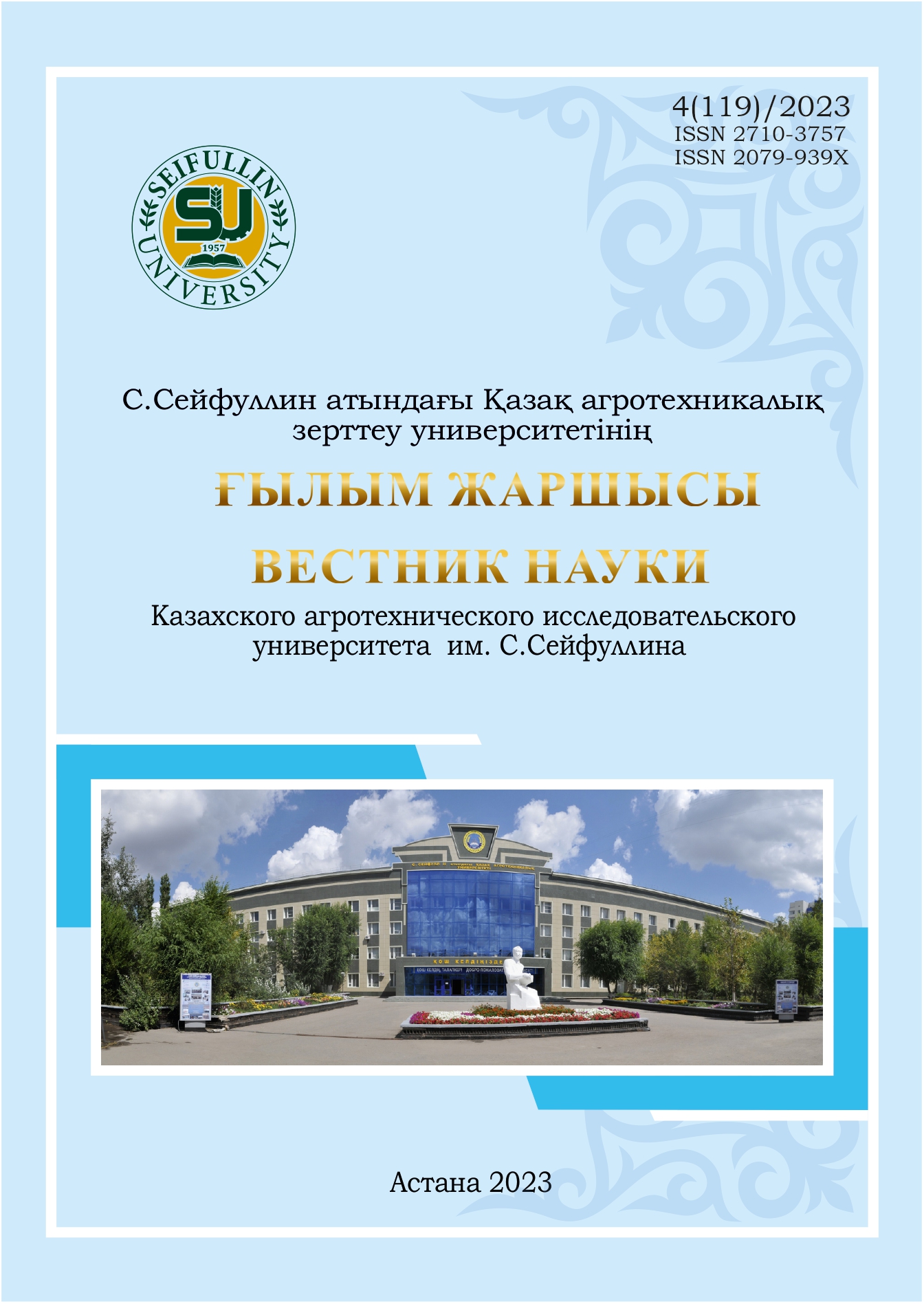ASSESSMENT OF THE RESISTANCE OF SOYBEAN VARIETIES TO THE CAUSATIVE AGENT OF FUSARIUM, COMMON IN THE CONDITIONS OF NORTHERN KAZAKHSTAN
DOI:
https://doi.org/10.51452/kazatu.2023.4(119).1545Keywords:
soybean; resistance; fusarium; variety; extension of diseases; root rot; infection background.Abstract
In recent years, the cultivation of soybeans for seeds has been of great interest to agricultural producers of Northern Kazakhstan. However, the Republic lags behind the leading countries in terms of yield, the cause factor of the lag is natural conditions, the use of less productive varieties, technical and technological underdevelopment. Another, equally important reason is the spread of various diseases in soybean crops, which often leads to a decrease in plant productivity. In this connection, the study and assessment of the resistance of various soybean varieties to diseases common on crops, in particular Fusarium, is important today in the conditions of Northern Kazakhstan. The study was conducted to identify the resistance of various soybean varieties to Fusarium, and to assess the effect of Fusarium spp on the morphometric parameters of soybean germinants. Birlik variety was found to be the most resistant to the disease, while Ivushka and Eldorado showed a significant reduction in germination ability and stem length in infected variants. The conventional techniques of seed inoculation and laboratory germination counting were used in the work. The results of the study can be useful when choosing a variety for soybean cultivation in conditions where there is a high probability of plant infection with Fusarium. In addition, this work can serve as a basis for further study of soybean resistance to fusarium blight.

